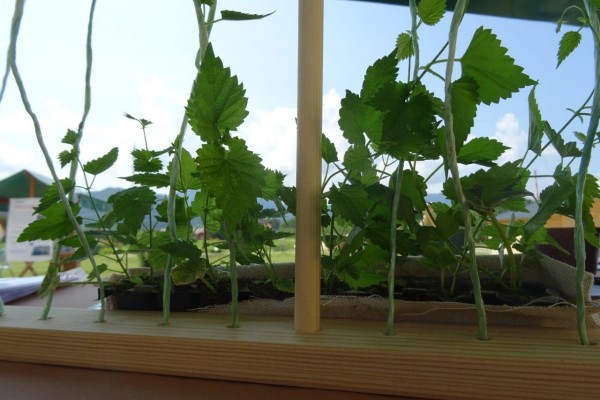Action B2 will demonstrate the feasibility of using the modified PLA twine in the hop growing industry. To this end, Lankhorst Yarns (LEP) will modify the twine material for increased weather resistance and mechanical performance, while taking into account the biodegradable regulations for onsite composting. The LEP’s Elite®Bio Twine, based on PLA, has been developed for long-term crops such as tomato, cucumbers and peppers, where the twine is loaded for the best part of a 10-month season, with a peak during the summer. This twine could in principle be used for hop culture, but could be significantly over-specified since the hop season is much shorter and the peak load is reached within a very short time. The material composition will be precisely regulated by the functional additive modifiers to achieve the desired properties of the hop twine, the produced modified twines will be tested in a hop training season of 2020, applied on the IHPS’ demo planation (30 ha), including with selected neighbouring hop-growers’ acreages.
Observations and validation will be continued during the whole hop-growing season until the harvesting process at the end of August/beginning of September 2020.

The functional requirements of the modified PLA twine will be thoroughly specified by IHPS. The twine’s sustainability to the successive stages of the hop growth and the harvesting abilities will be analysed.
Finally, the product is currently optimized for an industrial composting and not for on-site composting process. This means that the product could need to be tailored in order to accelerate the composting speed. In order to reach this goal, there are certain modifications that can be made to the product thickness, crystallinity & additives. The right approach will depend on the actual behaviour of the twine after the first year in onsite composting process.
There will be two deliverables made in this Action and will be published in the Deliverables section:
- B2.D1 Report on modified PLA twine, specifically adapted to the hop growing industry
- B2.D2 Validation report on novel PLA twine performances from hop field experiments
